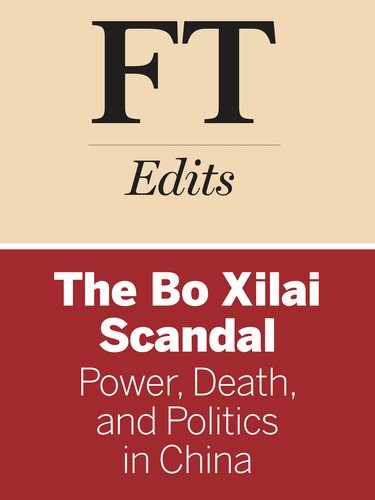Smashing black
In order to solidify his control over Chongqing’s police and security services, including the various domestic spy agencies, Bo plucked a man he had known well in northeast China and promoted him several ranks to the head of public security in the city.
This man was Wang Lijun, an ethnic Mongolian and a decorated police officer with a reputation for battling violent mafia gangs in China’s famously lawless northeast. With his rimless glasses and penchant for finely tailored suits, most people thought Wang was a professor or a doctor when they first met him.
Although he did not have much education beyond his time at police college, Wang was obsessed with learning and culture. On his business cards he listed nearly a dozen academic and scientific titles, including an honorary professorship at the University of New Haven in the US and his “part-time” job as a PhD supervisor at a university in Chongqing.
According to his card and résumé, he was also the director of four Chinese academic research centres and a senior executive for two international forensic associations – all while supposedly running the extensive security apparatus of a police state in an area the size of Austria.
Wang also liked to file patents and nearly 200 are registered under his name in China, mostly design patents including one for a white uniform worn by female traffic police officers in Chongqing who were picked primarily for their appearance.
In the late 1990s, Wang drew the attention of Party propagandists who created a television drama based on his exploits called Iron-blooded Police Spirits and later he personally commissioned a number of books and films that glorified his life and career.
A braggart and fantasist who claimed to have spent two years being trained by the American FBI and to have once talked kidnappers from the Italian mafia into letting him go, Wang often wore leather jackets he boasted were the same as those worn by former US president Bill Clinton.
He also conducted autopsies and, as police chief of the northeastern city of Jinzhou, he established an “on-site psychological research centre” to analyse the psychology of prisoners as they were executed, and then had their organs harvested for transplant, according to documents posted on Chinese government websites.
With his fame, and loyalty to Bo, Wang was just the person to help with what would become the centrepiece of Bo’s bid for higher office – a well-publicised war on “organised crime” known as the dahei or “smash black” campaign.
Wang arrived in Chongqing in June 2008 and a year later the pair formally launched their televised typhoon against the mafia.
Under Wang Lijun’s direction, thousands of “gangsters” were rounded up, along with dozens of officials and police who were accused of acting as “umbrellas” to shelter their criminal associates.
In a series of perfunctory trials, more than a dozen accused gang bosses were convicted and executed, while thousands of others were given lengthy prison terms and had billions of renminbi worth of assets confiscated.
The general public applauded as the police force was massively expanded and crime rates plummeted across the city but disturbing accounts soon emerged of Wang's contempt for legal procedures and the secret jail cells he set up around Chongqing where confessions were extracted through torture.
The campaign also caused a stir in Beijing, especially after the July 2010 execution of Wen Qiang, Chongqing’s head of judicial affairs and the former long-time deputy police chief of the city.
Mr Wen had served and prospered under two of Bo’s powerful predecessors – current Politburo standing committee member He Guoqiang, who oversees the Communist party’s internal anti-corruption squad, and Wang Yang, the Party secretary of Guangdong province previously seen as Bo’s biggest political rival.
Such a large-scale war on crime was viewed by many as implicit criticism from Bo of his predecessors, as well as a clear signal of his ambition to rise to the top of the Party. The campaign also began to affect the business and personal interests of other powerful people within the Party elite.
One of these people was the daughter of Qiao Shi, a retired leader who once ranked third in the Communist party and oversaw national security and intelligence in the 1990s.
She was angry that some of her business associates had been caught up in the “smash black” crusade and so she flew to Chongqing in mid-2011 to confront Wang Lijun, according to someone close to the Qiao family. But when she called on Wang and told him to release certain individuals, he was rude and dismissive and told her he would continue with the prosecutions.
She asked whether Wang knew who her father was and he impudently replied that if the 88-year-old Qiao Shi wanted to intervene he should travel to Chongqing himself.
In the 1990s, many Western political analysts saw Qiao as a likely candidate to take over the presidency of China but in 1998 he retired from office after apparently losing a power struggle to then-President Jiang Zemin.
Political insiders and analysts say Bo Xilai and his father Bo Yibo supported Jiang Zemin in this struggle and that Qiao Shi, a comparatively liberal official who strongly advocated greater rule of law in China, never forgave them.
After his daughter was treated so rudely by Bo’s henchman, Qiao insisted on attending a meeting of the Politburo standing committee in Beijing, a highly unusual request even for so senior a Party elder.
At that meeting, he denounced Bo’s policies in Chongqing as lawless and out-of-control and he compared the various campaigns there to the Cultural Revolution, according to the family friend.
This comparison with the tumultuous period in which so many of China's top leaders were toppled and imprisoned was lent extra weight by a nostalgic “red” public morality drive Bo launched to accompany the “smash black” campaign.
